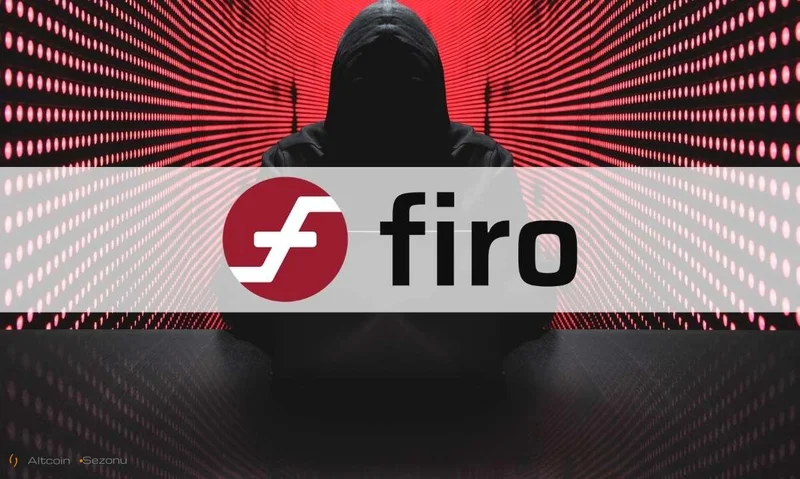Alright, buckle up, because something really interesting is happening in the crypto world, something that might just signal a major shift in how we think about digital privacy and currency. We're talking about FIRO, formerly known as Zcoin, and its absolutely massive 450% price surge since September. Yeah, you read that right. Four hundred and fifty percent!
Now, I know what some of you might be thinking: "Another flash in the pan? Another pump and dump?" But hear me out. This isn't just about numbers going up; this is about a technology finally getting the attention it deserves, a technology that could reshape our relationship with online privacy. It's like seeing the first Model T Ford roll off the assembly line – you might not know exactly where it's going, but you know it’s going somewhere big.
The core of FIRO is privacy, and in a world where our data is constantly being tracked, analyzed, and monetized, that's becoming more valuable than ever. The fact that FIRO uses advanced cryptographic technology to make transactions untraceable and keep account balances hidden? That's not just a feature; it's a statement. It's a declaration that we have a right to financial privacy.
Think about it: we lock our doors, we draw our curtains, we whisper secrets. Why? Because privacy is fundamental to being human. It allows us to explore, to experiment, to be ourselves without fear of judgment or exploitation. And yet, in the digital world, privacy is often treated as an afterthought, an optional extra.
FIRO, with its Lelantus protocol designed to enhance privacy and scalability, is pushing back against that. It's saying that privacy isn't a luxury; it's a necessity. And the market seems to be agreeing, given the surge in interest around their upcoming November 19th hard fork. It will enable Spark Name transfers, reduce GPU VRAM requirements, and include various performance improvements. Firo to Undergo Hard Fork on on November 19
The price has been testing the $3 resistance level, which has been stable for nearly three years. If FIRO can close above $3, it could accelerate its upward movement even further, hitting the next resistance at $4.80. Momentum indicators are bullish, with the Relative Strength Index (RSI) and Moving Average Convergence/Divergence (MACD) both increasing.

Now, of course, there are no guarantees. The crypto market is notoriously volatile, and FIRO has faced resistance at this level before. Some analysts are pointing to potential for a local correction, a retracement of gains. Okay, but let’s be honest: what new technology doesn’t face skepticism and corrections?
But I'm seeing something else here, something more profound. Social sentiment surrounding FIRO has increased, and it's organic, not driven by paid influencers. That tells me that people are genuinely excited about what FIRO is trying to achieve. They see the potential for a more private, more secure financial future.
And that brings me to the big idea: FIRO's surge isn't just about price; it's about empowerment. It's about putting control back into the hands of individuals. It's about creating a financial system that respects our privacy and protects our freedom.
What does this mean for us? What could it mean for you? Imagine a world where you can transact without fear of surveillance, where your financial data is your own, where you can support the causes you believe in without risking your reputation or your safety.
Of course, with great power comes great responsibility. Privacy can be used for good or for ill, and it's up to us to ensure that it's used to build a better world. We need to have serious conversations about the ethics of privacy coins, about how to prevent them from being used for illicit activities. But let's not throw the baby out with the bathwater. Let's not let fear and suspicion blind us to the incredible potential of this technology.
So, is FIRO the "next big thing" in crypto? I don't know. But I do know that it's sparking a conversation that we desperately need to have. It's reminding us that privacy is not a relic of the past; it's a fundamental human right that we must protect in the digital age. And that, my friends, is something worth getting excited about.